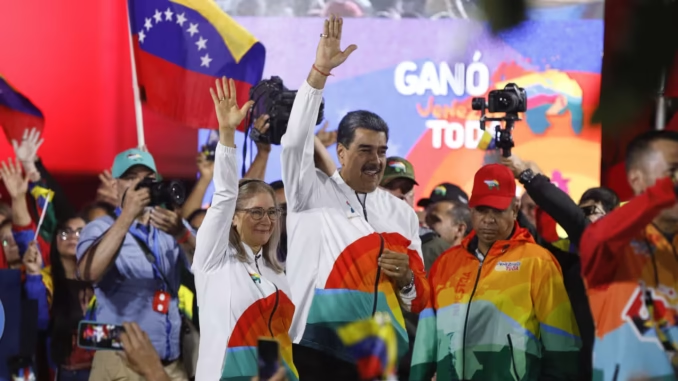
The dispute originated from a tense and high-stakes sporting event between Guyana and Venezuela. Both teams were vying for a crucial position in the regional tournament, where a spot in the finals was at stake. The match was fraught with tension from the very beginning, with both sides determined to secure a victory for their nation. However, as the game progressed, a contentious call on the court led to a series of disputes and a formal protest by Guyana’s team.
Guyana’s team argued that a controversial decision made by the match officials, coupled with questionable timekeeping, had undermined their chances. They presented their case to the governing body, citing inconsistencies in the application of the rules. This prompted an emergency hearing before the court to resolve the issue, with both teams and their legal representatives present to argue their case.
Initially, Guyana’s legal team appeared to have a strong case. The governing body had seemingly overlooked key details that would have favored their position. However, in a stunning move, the court ruled in favor of Venezuela, stating that the earlier ruling was based on a misinterpretation of the facts. The decision to uphold Venezuela’s stance left Guyana’s team and supporters in disbelief.
The aftermath of the ruling has been felt across the country. In a statement, the Guyanese National Sports Association expressed their disappointment, noting that the team had fought hard throughout the tournament and deserved a fair hearing. Many have criticized the court’s sudden decision, suggesting that it was influenced by external factors. Some supporters have voiced their suspicions, claiming that political tensions between the two nations may have played a role in the ruling. Although these claims remain unverified, they have sparked widespread anger among Guyanese citizens who believe their team was wronged.
The ruling has also sparked a wider conversation about fairness in regional sports. Critics argue that inconsistent rulings and lack of transparency in decision-making processes have become a persistent issue in regional competitions. Some have called for greater oversight and accountability to ensure that all teams are treated equally and fairly, regardless of their political affiliations or national interests.
As Guyana tries to come to terms with the court’s decision, attention is now turning to the future of the national team. There are growing concerns about the long-term impact this ruling will have on the players and the morale of the squad. Many fear that the emotional toll from the loss will affect the team’s performance in upcoming events, especially given the high stakes and the intense rivalry with Venezuela. Some players have expressed their frustration with the legal proceedings, while others have called for a more thorough investigation into the fairness of the court’s ruling.
Despite the setback, there is a sense of determination within Guyana’s sports community. The national team has vowed to continue pushing forward, even in the face of adversity. “We may have lost this battle, but we won’t lose the war,” one player said in an emotional post-match interview. The team’s resolve is a testament to the resilience of Guyanese athletes, who have faced countless challenges in their pursuit of excellence on the international stage.

As the dust settles, the court ruling remains a contentious issue that will likely reverberate for years to come. Whether the decision stands or is later overturned, it has undoubtedly left a lasting impact on Guyana’s sporting landscape. For now, the country’s focus will shift to rebuilding and preparing for future challenges, all while seeking answers for the unexpected setback that has marred their tournament journey.

Leave a Reply